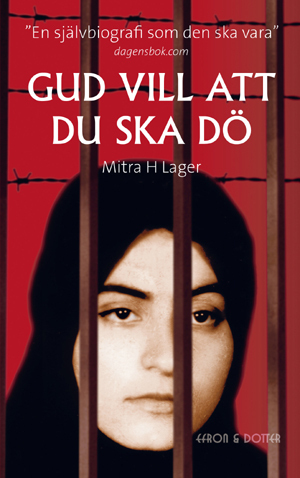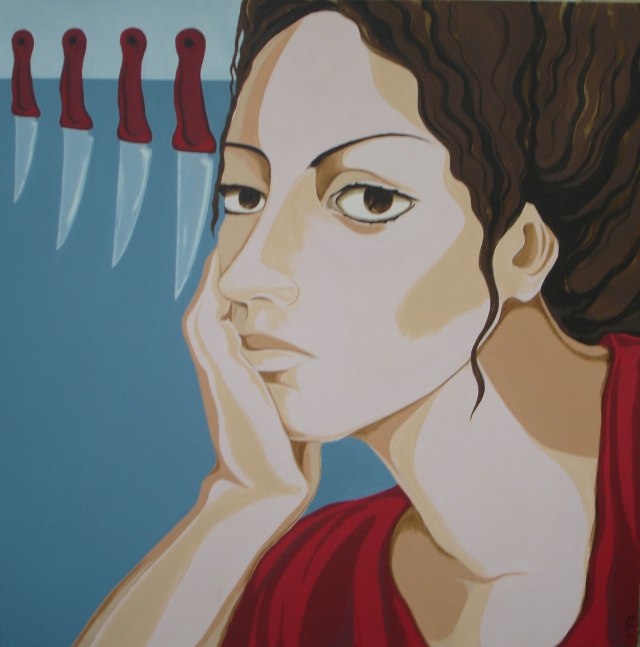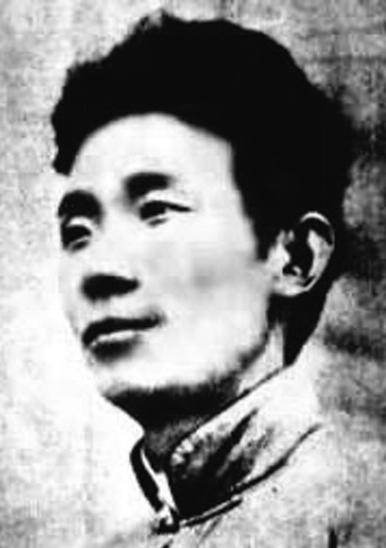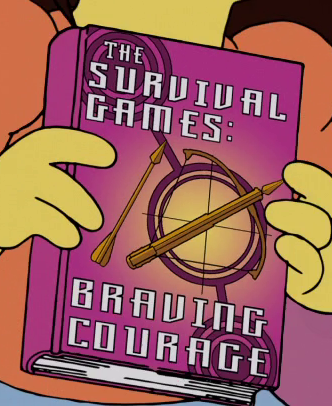(Trigger warning for discussions of torture and death)
This post is a part of my series “Torture Awareness Month”
Mitra H. Lager is an Iranian Women´s Rights and secular activist. She lives in Gothenburg, is a member of the political group “Feminist Iniativ” and the Swedish “Humanist” (an organization dedicated to decreasing religious influence on society and to promote reason), and writes for “Avaye-Zan” (which translates as “womans voice”). Ms. Lager is a well-known debater, but mostly famous for the memoir of her life in Iran, titled “Gud vill att du ska dö” (“God wants you to die”). The title comes from a threat Ms. Lager and her fellow prisoners were told to by guards while in prison. It hasn´t been translated into English to my knowledge, which is a real shame, since it´s one of those few memoirs that are not only a recollection of one person’s memories, but actually an insight to a country´s modern history and a perceptive description of how lives are deformed and inflicted through social injustice. It´s not only a journey where Mitra H. Lager follows the path of her life which ends in a residency in Sweden, but also lays bare the trajectory of modern day Iran and how it came to be the theocracy it is today. “God wants you to die” also describes some of the most honestly brutal descriptions of torture.
Ms. Lager begins her memoir by stating that she wanted to write this memoir for those of her friends and family members who died due to Era of Ayatollah Khomeini. The memoir then dives into describing the forceful demonstrations that take place in Iran during the 1980s. Ms. Lager also describes her family and home life, which was partly conservative and partly liberal, differing from each individual in the family. Throughout the book, Lager makes a perfect blend of personal and political, and also demonstrates how those two things often blend in together. At the tender age of 17, Ms. Lager got arrested for her protest against Ayatollah Khomeini; she was deemed as an enemy of Islam and sent to Evin, the most infamous prison in Iran.
Torture is shown as the go-to “method” used against the prisoners in “God wants you to die”. One of the most heart-breaking examples is, before Ms. Lager is imprisoned, when her cousin´s dead corpse is sent to the family after the cousin has spent time in prison. Lager admits that at the time she was in love with her cousin, and had he not died she might have married him. She then proceeds to describe what his body looks like, holding back no macabre details, like that his eyes were gored out (leaving the family to stare at empty eyesockets) and he is covered in blood. The family wants to give him a decent funeral, but first the body has to be washed. As his body is bathed, Ms. Lager and her family breakdown into tears, crying violently the entire time the young man’s body is washed. The most tragic thing Lager says about the situation is: “He was a good person, a kind person, and he was grotesquely tortured to death. Why?”
Later in prison Lager witnesses more torture and executions. She details that a common tactic to scare other prisoners is to torture one prisoner and then give the victim of the abuse to the other prisoners to nurse their wounds, both physical and mental. While they clean and tend to the prisoners wounds, they see what can be done to themselves at the whim of their captors. This threat continuously lingers above all of the inmates haunting both their sleeping and waking hours. One horror, and dreaded endgame which lingered over the prisoners was to be marked with a wound during the torture sessions (or anytime during the incarceration, actually). Once a scar was made, the prisoner was often shortly killed afterwards.
Lager states that when she was younger, she was a devoted Muslim. It was one of the main driving forces to her political activism. But while in prison, this changes. Lager is taken to “interrogation” about her incorrect beliefs and she is subjected to her feet being hit with blocks. In the extreme pain she faces, Lager begins a trail of wondering why, despite always having faith and navigating her belief faithfully and strongly, she finds herself randomly imprisoned and witnessing terrible injustices by those professing to true belief . In the midst of being tortured, Lager states that she experiences a sundering of her belief, an “epiphany”, where she concludes that no kind god would be able to bear witness to the sufferings of those who imprisoned with her, since she, and many of those with her, had always been a believer in this God of Might and Justice.
The memoir illustrates the victims of torture as ordinary people who are crushed by authoritarian rule. Ms. Lager and her fellow prisoners are helpless under the power of others, with no escape. ”God wants you to die” details also that while the torturers were not merely trying to get information, that the act of torturing also strengthen the hatred the torturers had for their victims. Lager mentions once hearing two torturers screaming at their victim: “You think this is bad? This is only the beginning, we´re sending you straight to hell!”. It is a form of intimidation, but also the ultimate expression of hate for the ones who don´t conform. They hurt their victim not only out of order, but also out of anger that the person disobeyed. Torture here is used (as always) as the purest form of power and abuse. While many of the guards in the prison show clear sadistic trends, Lager also shows that some of the prison guards are decent people caught up in an insanity which they see no help to escape. One night a guard states to Lager: “I never could imagine my life would be this, guarding the youth of Iran. Oh lord, What a horrible destiny I have gotten!”.
Ms. Lager only references her atheistic awakening in one sentence, which dawns upon her in the devastating sinkhole of torture. This understanding is sadly achieved in the morass of suffering and humiliation and we agonize with her in the emptiness of horrific experiences which come to sharpen and shape her beliefs. In a like manner, where horrors shape a persons beliefs, the documentary, “Deliver us From Evil” ( directed by Amy Berg in 2006), about sexual abuse by a church, a man is shown losing his faith and becoming an atheist after discovering that his daughter was molested by a preacher and the church is evasive and unresponsive to the “sin” perpetuated by it. Lager´s atheism, likewise, steams from a frustration with corrupt religious extremism, which many atheist share. Similar frustrations with faith are shown in Bertrand Russell´s essay “Why I am Not Christian” (1927) and Ibq Warraq´s book “Why I am not Muslim” (1995), both of which explore the myriad justifications and prevarications which enable a slew of hideous things done within the internally vindicated acts of religion. Lager´s entire memoir is a thoughtful piece of literature not only on tyranny, but also on the questions regarding the power religion has over the individual and how the totalitarianism of true and pure belief becomes a weapon of malice and hate.
While political prisoners are not killed as often in Iran as they were back in religious and political hysteria of the 80´s, prisoners in Iran still face the all too common use of torture. Therefore it´s safe to say that Lagers outspoken book is still an insight which culls insight about the era and about the use of torture generally.
“God wants you to die” is not only a book about torture and death, but also about hope. Lager is later released from prison, and after battling crippling depression and survivor’s guilt she finds love and marries. When she is once again suspected of political activism, she even finds a way to escape. The book also has a heartbreaking scene where Lager critiques the refugee politics of the time, which unfortunately still remains an issue with us till this day.
The themes are heavy, so be warned you will cry while reading this memoir, but the language is quite fresh and Lager captivates you in her story of survival and of power abuse. “God wants you to die” is one of those rare gems of non-fiction which even fiction lovers will care for and learn from.
For more Iranian memoirs, check out Parsua Bashi´s “Nylon Road” or Marjane Satrapi´s “Persepolis”. Both are graphic novels!

















Hi,
I like the post and tt’s very interesting that Ms. Lager became aheist in prison. However many people actually become more religious after being tortured in prison.
In the “The Road To Guantanamo”, one torture surviver said he become a better muslin after stayed at Guantanmo prison.
Thank you for liking the post! It´s true, but I think the reason why some people become more religious or some loose faith when being tortured is because people respond to traumatic/firghtening situations in different ways. It´s also depends on the situation and what kind of person one was before the situation. Ms. Lager probbably lost her faith since in her mind, she was being a true believer and the guards were hurting her while telling her she was not. So since she was exposed to the darker side of her own religion, she stopped believing. The guy in “The Road to Guantanamo” was a muslim before his capture, and became just more practizing; he doesn´t quite explain what he´s thinking in the doc, so there are a lot of things which inspired his change of habits: maybe the fact that his torturers where Islamophobic racist made him want to stand for “who he was” more, or maybe he thought he was punished for not being religious enough, or maybe he felt that god had helped him survive. Or maybe religion gave comfort, who knows.
I wasn´t claiming that being in prison makes people atheist, I was mostly reflecting on how a lot of athesit have infact been believers but corruption or ill-guided things inside of religions case them to become disillusioned. I was moved by Ms. Lagers own personal version of this. 🙂
Thank you for explaining 🙂
No Problem 🙂